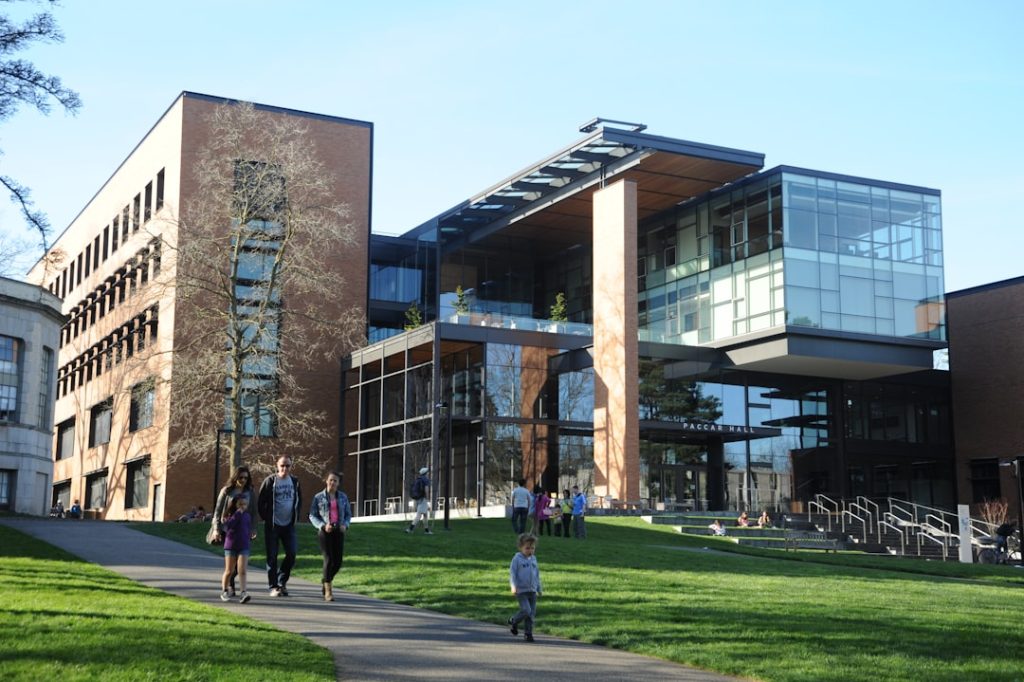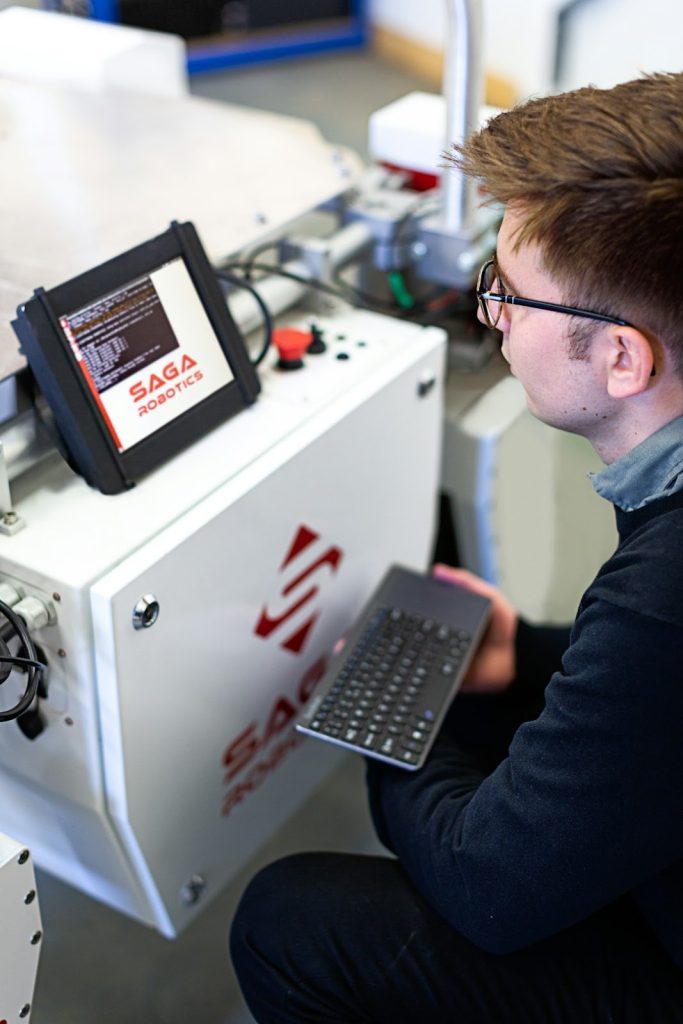Choosing the right university for technology studies can be a daunting task. With so many options available worldwide, how do you determine which institution will provide the best education and opportunities for your future career? This article aims to provide an in-depth analysis of top performers, ranking the top universities, and defining what makes a “top technology university.” We’ll also focus on specific technology fields, value addition, student experience, and career outcomes, all from a global perspective.
What Defines a “Top Technology University”?

When considering what makes a university stand out in the field of technology studies, several key factors come into play:
Research and Innovation
Top technology universities are often at the forefront of research and innovation. They have dedicated research centers, significant funding, and partnerships with industry leaders. This allows students to work on cutting-edge projects and gain hands-on experience. Furthermore, these institutions often publish a high volume of research papers in prestigious journals, contributing to advancements in various tech fields. Students also benefit from attending conferences and seminars where they can present their research and network with industry professionals.

Faculty Expertise
The faculty at top technology universities are often leaders in their fields. They bring a wealth of knowledge and real-world experience, offering students not just textbook learning but also insights into the latest industry trends and technologies. Many faculty members have backgrounds in pioneering research and have often worked in high-level positions within the tech industry. This blend of academic and practical experience ensures that students receive a comprehensive education. Additionally, faculty members often mentor students on individual projects, providing personalized guidance and support.

Facilities and Resources
State-of-the-art laboratories, libraries, and other facilities are crucial for a top technology university. Access to the latest tools and technologies allows students to experiment and innovate, preparing them for the challenges of the tech industry. These facilities often include specialized labs for fields like robotics, artificial intelligence, and biotechnology. Universities also invest in high-performance computing resources and advanced software tools. Moreover, libraries at these institutions are stocked with the latest journals, books, and digital resources, providing students with extensive research materials.

Industry Connections
Strong ties with industry leaders provide students with internship opportunities, job placements, and real-world project experiences. These connections can be a significant advantage when entering the job market. Universities often host career fairs, bringing in top companies to recruit students directly from campus. Industry-sponsored projects and competitions also give students a chance to work on real-world problems, often leading to job offers upon graduation. Many universities have advisory boards comprising industry leaders who help shape the curriculum to meet current market demands.

Global Reputation
A university’s global reputation can significantly impact a student’s career. Graduating from a well-known institution can open doors worldwide and provide a network of alumni and industry contacts. This reputation is often built on a history of academic excellence, groundbreaking research, and successful alumni. Universities with a strong global presence often partner with other leading institutions around the world, offering students exchange programs and collaborative research opportunities. A well-regarded degree can also enhance a graduate’s credentials when applying for international jobs or further studies.

Ranking the Top Universities
Massachusetts Institute of Technology (MIT)
MIT is often considered the gold standard for technology education. Located in Cambridge, Massachusetts, MIT offers a plethora of undergraduate and graduate programs in various technology fields. The university is renowned for its research output, faculty expertise, and state-of-the-art facilities. MIT’s strong focus on interdisciplinary studies allows students to work on projects that span multiple fields, enhancing their problem-solving skills. The institution’s robust entrepreneurial ecosystem also supports students in launching their startups, contributing to its reputation as an innovation hub.

Stanford University
Stanford University, located in the heart of Silicon Valley, is another top contender. The university offers a range of technology programs and has strong ties with tech giants like Google, Apple, and Facebook. Stanford’s focus on entrepreneurship and innovation makes it a favorite among aspiring tech leaders. The university’s location provides students with unique networking opportunities and internships at leading tech companies. Stanford also emphasizes hands-on learning, encouraging students to engage in research projects and industry collaborations from the outset.

California Institute of Technology (Caltech)
Caltech, located in Pasadena, California, is known for its rigorous academic programs and research opportunities. The institute has a strong focus on science and engineering, making it an excellent choice for students interested in these fields. Caltech’s small student-to-faculty ratio ensures personalized attention and mentorship. The institute’s emphasis on fundamental research and innovation has led to numerous scientific breakthroughs. Caltech’s collaborative environment encourages students to work closely with faculty on cutting-edge research projects.

University of Cambridge
The University of Cambridge in the UK is another top choice for technology studies. The university has a long history of excellence in education and research. Cambridge’s strong emphasis on interdisciplinary studies allows students to explore various technology fields comprehensively. The university’s numerous research centers and institutes provide ample opportunities for students to engage in groundbreaking research. Cambridge’s global partnerships and exchange programs offer students international exposure, enhancing their academic and professional experience.

National University of Singapore (NUS)
NUS is a leading university in Asia for technology studies. The university offers a range of programs in engineering, computer science, and information systems. NUS has strong industry connections and provides students with numerous opportunities for research and internships. The university’s strategic location in a global tech hub offers students access to a dynamic tech ecosystem. NUS’s emphasis on practical learning ensures that students are well-prepared for the workforce. The university’s vibrant campus life and diverse student body create a stimulating environment for learning and personal growth.

Focus on Specific Technology Fields

Computer Science
Computer science is one of the most popular and versatile fields in technology. Top universities like MIT, Stanford, and Carnegie Mellon University offer comprehensive programs that cover everything from algorithms to artificial intelligence. These programs often include coursework in data structures, machine learning, and cybersecurity. Students also have the opportunity to participate in research projects and internships, gaining hands-on experience in cutting-edge technologies. Universities often host coding competitions and hackathons, encouraging students to apply their skills in real-world scenarios.

Engineering
Engineering is another broad field with various specializations like electrical, mechanical, and civil engineering. Universities like Caltech, Stanford, and the University of Tokyo offer some of the best engineering programs globally. These programs emphasize both theoretical knowledge and practical skills, preparing students for diverse career paths. Engineering students often engage in design projects, internships, and research, gaining experience in solving complex problems. Universities also provide access to advanced labs and equipment, allowing students to experiment and innovate.

Information Technology
Information technology (IT) focuses on the practical applications of technology in business and industry. Universities like NUS and the University of Melbourne offer excellent IT programs that prepare students for careers in various sectors. These programs cover topics like database management, network security, and software development. IT students often work on real-world projects, collaborating with industry partners to solve business challenges. The curriculum is designed to keep pace with the rapidly evolving tech landscape, ensuring that graduates are job-ready.

Biotechnology
Biotechnology is an emerging field that combines biology and technology. Institutions like MIT, Stanford, and the University of Cambridge offer cutting-edge programs in biotechnology. These programs explore areas like genetic engineering, bioinformatics, and pharmaceutical development. Biotechnology students often engage in lab research, working on projects that address critical issues in healthcare and the environment. Universities also collaborate with biotech companies, providing students with internship and job opportunities. The interdisciplinary nature of biotechnology programs prepares students for a wide range of careers in science and technology.

Value Addition and Student Experience
Internships and Co-op Programs
Many top technology universities offer internships and co-op programs that allow students to gain real-world experience. These programs are often facilitated through strong industry connections and can significantly enhance a student’s resume. Internships provide students with the opportunity to apply their classroom knowledge in a professional setting, gaining practical skills and insights. Co-op programs, which alternate periods of academic study with full-time work, offer extended industry experience. These programs often lead to job offers, as employers value candidates with hands-on experience.

Extracurricular Activities
Extracurricular activities like tech clubs, hackathons, and research groups provide students with opportunities to apply what they’ve learned in the classroom. These activities can also help students build a network of like-minded peers and industry professionals. Participation in extracurriculars fosters teamwork, leadership, and problem-solving skills. Universities often host events and competitions that encourage innovation and creativity. These activities also provide a platform for students to showcase their talents and projects to potential employers.

Scholarships and Financial Aid
Top technology universities often offer scholarships and financial aid to attract the best talent. This can make a significant difference for students who might otherwise be unable to afford a top-tier education. Merit-based scholarships reward academic excellence, while need-based aid ensures that financial constraints do not hinder access to quality education. Universities also offer specialized scholarships for underrepresented groups, promoting diversity and inclusion. Financial aid packages may include grants, loans, and work-study opportunities, providing comprehensive support to students.

Campus Life
A vibrant campus life can enhance the overall student experience. Universities like Stanford and MIT offer various student organizations, sports teams, and cultural events, making the campus a lively and engaging place to be. Campus life provides opportunities for personal growth, social interaction, and community building. Students can join clubs related to their interests, participate in intramural sports, and attend cultural festivals. Universities also offer support services, such as counseling and career advising, to ensure student well-being.

Career Outcomes

Job Placement Rates
Top technology universities often boast high job placement rates. Graduates from institutions like MIT, Stanford, and Caltech are highly sought after by employers worldwide. These universities have dedicated career services that assist students with job searches, resume building, and interview preparation. Employers value the rigorous education and practical experience that students gain at these institutions. High job placement rates reflect the strong industry connections and reputation of these universities.

Alumni Network
A strong alumni network can provide invaluable support and opportunities throughout a student’s career. Top universities often have extensive and active alumni networks that can help with job placements, mentorship, and professional development. Alumni networks offer a platform for graduates to connect, share experiences, and collaborate on projects. Universities often organize alumni events, networking sessions, and mentoring programs. A robust alumni network can open doors to job opportunities, business partnerships, and lifelong friendships.

Starting Salaries
Graduates from top technology universities often command high starting salaries. This can be attributed to the quality of education, the reputation of the institution, and the strong industry connections. High starting salaries reflect the demand for skilled professionals in the tech industry. Universities often publish salary statistics for their graduates, providing transparency and helping prospective students make informed decisions. Strong earning potential is a significant factor in the return on investment for a technology education.

Global Perspective
International Collaboration
Top technology universities often collaborate with institutions and companies worldwide. This provides students with opportunities for international research, internships, and job placements. Global collaborations enhance the scope and impact of research projects, addressing complex global challenges. Universities often participate in international consortia and research networks, fostering cross-border innovation. Students benefit from exposure to diverse perspectives, methodologies, and technologies.

Diverse Student Body
A diverse student body enriches the learning experience by bringing different perspectives and ideas. Universities like MIT, Stanford, and N
